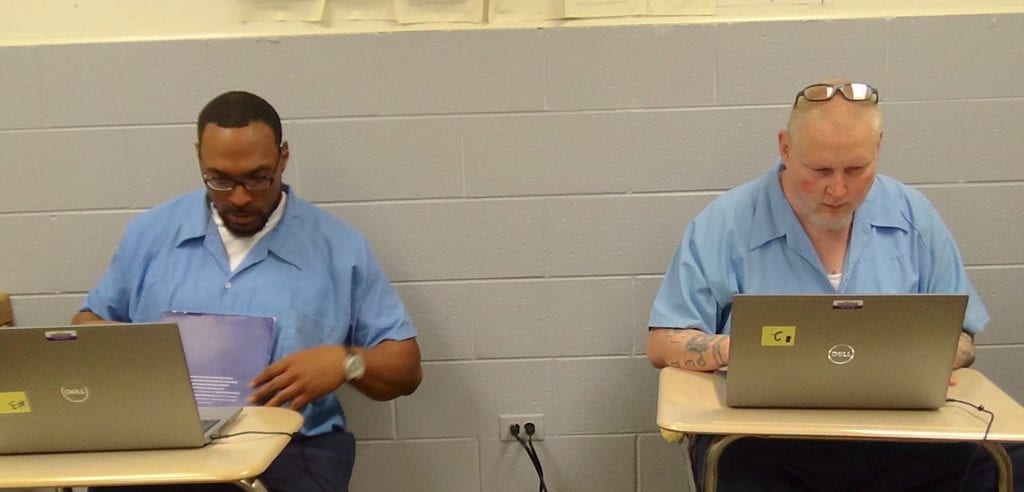Students will now have digital access to Northwestern libraries and the ability to type class assignments.
For the first time, students in the Northwestern Prison Education Program (NPEP) at Stateville Correctional Center have access to laptop computers for use in their academic work — a significant stride forward for the program that aims to harness the transformative power of education in paving the way to a brighter future.
Instead of conducting research through a conduit of NPEP librarians and volunteers, students at Stateville will now have the ability to digitally access Northwestern libraries. Additionally, word processors on every computer mean far fewer handwritten assignments for students.
“Through the generous support of the Mellon Foundation and our valued partnership with the Illinois Department of Corrections, we are delighted to provide this invaluable opportunity to our students at Stateville,” says NPEP Director Jennifer Lackey. “The ability to engage in research directly through the Northwestern libraries will take our students’ academic experience to the next level.”

Students Mark Dixon (L) and Anthony Ehlers (R) use the new NPEP computers.
Mark Dixon, a Cohort 2 student who is enrolled in a documentary filmmaking class, recently had to write a treatment on a topic of his choosing. But to learn more about the topic, he had to rely entirely on Northwestern librarians and NPEP volunteers to conduct research on his behalf at Northwestern’s main campus in Evanston. Once the materials were compiled, they were then sent to Dixon.
The multi-pronged research process — students may wait days and, in some cases, weeks to receive the information they’re seeking because of the limited access to technology inside — could be shortened to one single study hall period thanks to the new computers.
Robert Boyd, a Cohort 1 student, agrees, adding that computers will not only help students shorten their research time but will also reduce the time spent handwriting papers. Boyd says that he frequently writes an assignment — often with a pen the size of a pinkie — three or four times before turning it into a professor. Deleting a handwritten section of a paper often means the trash can and a new sheet of paper.
But with computers, Boyd says he’ll be able to write and rewrite assignments without starting from scratch, saving valuable time that he can now devote to other projects.
Being able to type papers might also have advantages for professors. Noting that his own handwriting leaves much to be desired, Cohort 3 student Christopher Douglas is looking forward to turning in typed papers that are easier for his professors to read. Moreover, this benefit will surely be enhanced now that students will have access to spellcheck for the first time since joining NPEP.
Tony Triplett, a Cohort 1 student, said that, in all, computers are a resource that can help students minimize their manual labor and put more effort into perfecting their assignments. The introduction of technology might be intimidating for some — especially for those in the program who have never used a computer before — but Triplett said he and others are committed to making sure fellow students can take advantage of what the technology has to offer.
“This is a blessing to have a resource that can help us with our school[work],” Triplett said.
